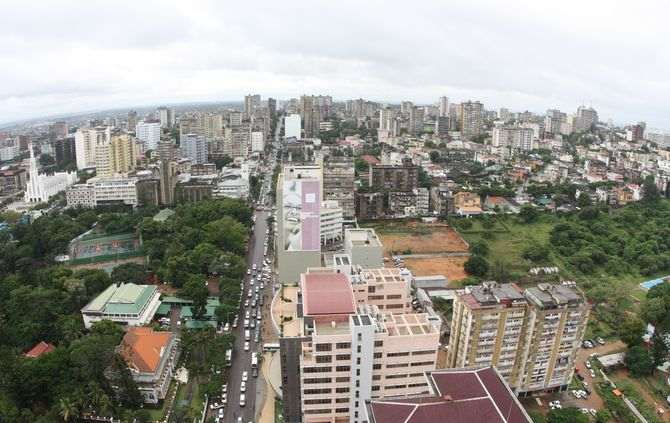Spain: The Nueva Pescanova Group promotes phase two of a project to strengthen maritime-fishing ...
Mozambican ambassador wants to see more Portuguese entrepreneurs in Mozambique

The Mozambican ambassador to Portugal, Fernanda Lichale, urged Portuguese businesspeople to go to Mozambique, one of Portugal’s main strategic partners.
“I always say that Portuguese investment is welcome. Portugal has always been among the top 10 investors in Mozambique,” the diplomat said.
The ambassador was speaking in Lisbon at the launch of a book, `International Tax Law of Mozambique – The Double Taxation Conventions’ by Bruno Santiago and Sara Teixeira.
“Portuguese businesspeople are welcome in Mozambique, because ours is a relationship of brotherhood, friendship, but above all, of affection,” she said, noting that Portugal is a strategic partner and one of the most successful at creating jobs in the country.
Intended investment in Mozambique fell 48 percent in the first half of 2016 compared to the same period the year before, with Portugal still ranking fifth among investors, albeit with an above-average fall of 80 percent.
According to data released in August by Mozambique’s Investment Promotion Centre (CPI) to which Lusa has access, total investment approved in the first half of the year amounted to US$478 million (EUR 430 million), of which US$304 million (EUR 273 million) was foreign direct investment, US$52 million (EUR 47 million) and US$122 million (EUR 109 million) from supplies and loans respectively.
All forms of investment suffered sharp declines, with foreign investment falling 54 percent and domestic investment 56 percent.
In the case of Portugal, the decrease was even greater, with 17 projects approved by the CPI totalling only US$14 million (EUR 12 million), against US$34 million in the same period of 2015, a fall of 80 percent.
The list of top investors in the first half is led by China, with US$154 million (EUR 138 million), almost 60 percent of total foreign direct investment.
Behind China comes South Africa, with US$45 million (EUR 40 million euros), Mauritius with US$29 million (EUR 26 million ), the United Kingdom with US$22 million (EUR 20 million), and Portugal, which in 2015 had finished the year in fourth place.
The remaining countries on the list of the top ten investors are Turkey, Italy, India, Spain and the United States.
Portuguese investment until last year created more jobs than the average, but CPI data shows that, in the first half, authorized Portuguese projects foresaw just 28 jobs per million dollars invested, well below the average 44 of other countries.
At the end of 2015, Portuguese investment created 31 jobs per million dollars invested, against 30 of other countries.
Of the foreign investment approved by the CPI, almost 80 percent is concentrated in the construction and public works sector, industry, agriculture and agribusiness, and more than half (55 percent) in Maputo province and city, and 21 percent in Sofala.
Of the 17 projects approved for Portuguese investment, 67 percent are focused on the services sector and more than two-thirds (68 percent) are planned for the province of Maputo.
Investment in Mozambique has seen significant increases in recent years, but experienced a strong reversal of trend in 2015.
Authorized investment projects in Mozambique fell by 74.5 percent in 2015 from the previous year to US$1.7 billion (EUR 1.5 billion).
In 2015, Portugal had 48 approved projects (behind only South Africa, with 61) with a total value of US$88 million (EUR 79 million), a drop of 73.7 percent over 2014, which had been the most significant year since 2009.
The Mozambican economy is being hit by slowing growth, with the 7 percent initially foreseen by the Government in 2016 revised downwards to 4.5 percent, with strong metical devaluation and rising inflation.
Exports declined as a result of weak domestic production and falling commodity prices, a situation worsened by the impact of natural disasters and the political and military crisis between the government and the Mozambican National Resistance (Renamo), mainly affecting the central region of the country.
In April, government-guaranteed loans amounted to US$1.4 billion (EUR 1.2 billion) between 2013 and 2014 increased public debt to 86 percent of gross domestic product.
Following the discovery of debts not reported to parliament or international partners, the International Monetary Fund suspended payment of a loan to Mozambique, and 14 donors to the state budget also discontinued their financial support.













Leave a Reply
Be the First to Comment!
You must be logged in to post a comment.
You must be logged in to post a comment.